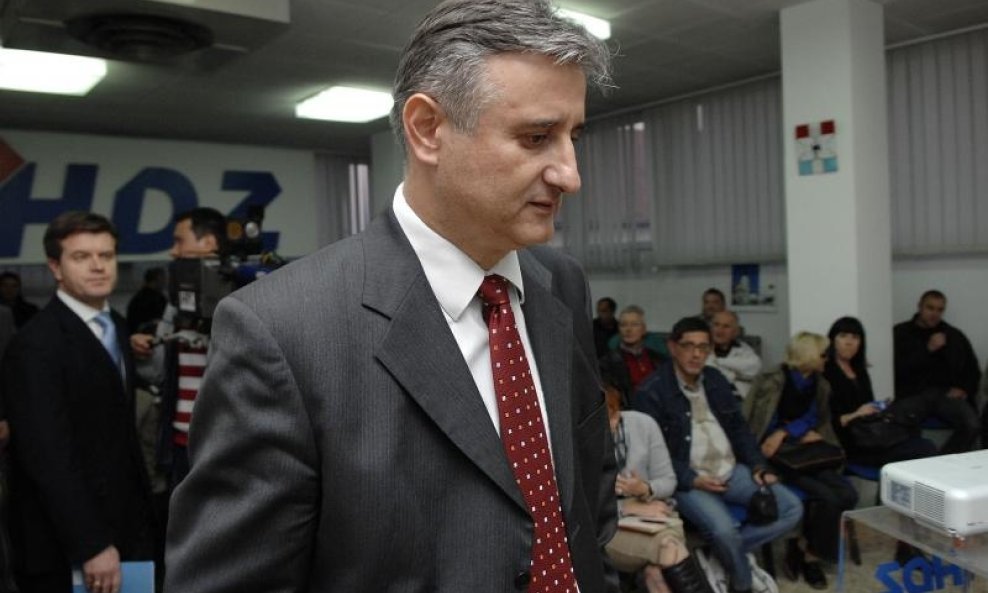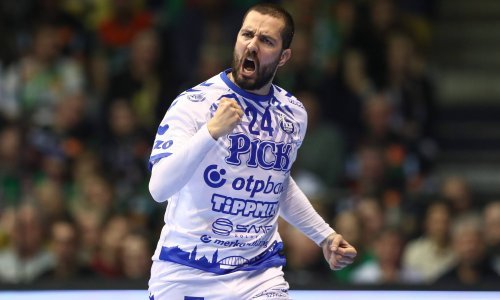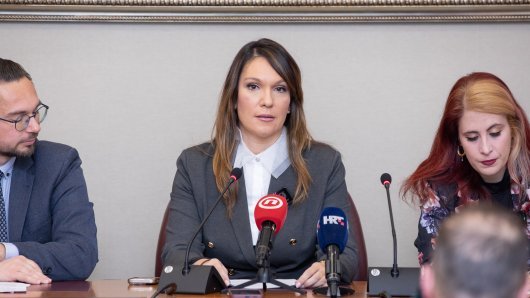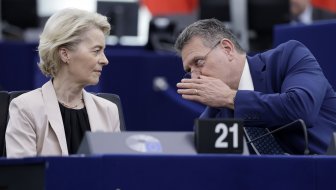The head of the strongest opposition party, the Croatian Democratic Union (HDZ), announced on Monday that the majority in the Vukovar Town Council would launch the procedure to amend the town statute so that Vukovar could be declared a special site of reverence for victims of the 1991-1995 war and a moratorium could be imposed on putting up dual Latin and Cyrillic signs on public institutions in the town.
"In the coming days we will launch the procedure to amend the town statute," HDZ president Tomislav Karamarko said in an interview with Croatian Radio, adding that he believed that this would happen within the next week. He reiterated that dual-alphabet signs were not a good idea at the moment and that the town should be declared a special site of reverence for Homeland War victims.
Commenting on an announcement that President Ivo Josipovic was planning an initiative to resolve the crisis in Vukovar, Karamarko said he did not know what it was about and that he expected to meet with the President soon. He said he would like initiatives that were being proposed to be clear and no big show should be made of them.
Karamarko rejected speculations that the HDZ was the political sponsor of the Initiative for the Defence of Croatian Vukovar, stressing that this was "underestimating the citizens of Vukovar". He said it was normal that the people of Vukovar were sensitive about dual-alphabet signs because their town had defended Croatia with great sacrifice and many people had lost their loved ones in the war.
Karamarko dismissed the claim by Vukovar mayor Zeljko Sabo that the HDZ was using the situation surrounding dual-alphabet signs in an attempt to provoke a new mayoral election, saying that there were many other ways for his party to win at elections.
Responding to the interviewer's remark that the town statute, passed by an HDZ-led majority in the Town Council in 2009, provided for dual-alphabet signs, Karamarko said he did not know what the motive of the ruling majority in the town had been at the time, that he was not thinking in the same way as his predecessors and that the HDZ today was different from the HDZ then.
The HDZ leader said that Serb residents of Vukovar should have shown sympathy for their fellow citizens who had suffered in the war, but noted that the main culprit for the present situation was the government which was trying in a bureaucratic way to enforce what was not a bureaucratic issue. He urged the government to withdraw its decision on bilingualism in Vukovar and to remove the dual Latin and Cyrillic signs from the state institutions in the town.
Commenting on the fact that such signs were put up in Udbina where the HDZ was in power, he said that no other town in Croatia could be compared to Vukovar because of its great sacrifices in the war.
Karamarko once again called for amending the law on judicial cooperation with the EU in criminal matters, popularly dubbed Lex Perkovic, and rejected as insinuations the statements by Prime Minister Zoran Milanovic about collusion between the HDZ, the European People's Party and EU Justice Commissioner Viviane Reding.
"Of course, following the old socialist model, there is always an enemy within and an enemy without. We are the enemy within and Mrs Reding is the enemy without. Both the enemy within and the enemy without have joined against the government's brilliant decision not to honour what we signed a few months earlier," Karamarko said.
He said that it was an attempt at protecting state-sponsored terrorism dating from the time of socialist Yugoslavia. "Attempts are being made to protect that regime from being accused of state terrorism. The main problem is the chain of command, which shows that the Central Committee of the Croatian League of Communists and the Central Committee of the Yugoslav League of Communists ordered executions through relevant bodies," the HDZ leader said, noting that it was well known who the legal successor to the Croatian League of Communists was.
Karamarko reiterated that, if no other solution was found, the HDZ would support constitutional amendments that would remove the statute of limitations on politically motivated crimes, but that such crimes should be defined first.
He said that politically motivated murders after 1990 were excesses, many of which had been prosecuted and their perpetrators punished, unlike Yugoslav-era executions when murderers had been rewarded for their crimes.
He dismissed the interpretation that lifting the time limit for the application of the European Arrest Warrant would expose Croatian war veterans to possible trials before EU courts, saying that the defenders of Croatia had fought in Croatia and not in other EU countries.
"People who once advocated that all wanted defenders should be handed over to The Hague are suddenly no longer in favour of extraditing people accused of crimes committed during the communist regime," Karamarko said.
Commenting on a proposal by the ruling Social Democratic Party (SDP) to establish a parliamentary inquiry commission for the Djurekovic case, which would be headed by Karamarko, the HDZ leader said: "Mr Milanovic cannot order me what to do." He said that such a commission was not necessary because it was a very clear case.
Karamarko called on the government to start behaving "in a civilised manner" and to withdraw Lex Perkovic. He said that the government always floated ideological topics when bad news was coming from the economic front, and once again called for an early election.




































